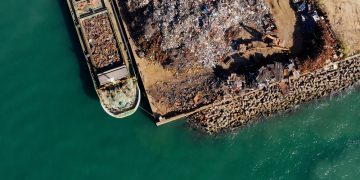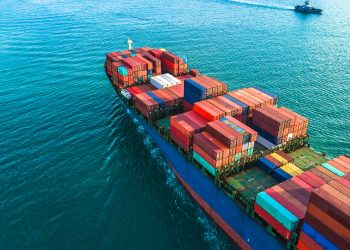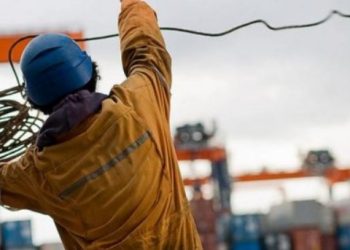The UK Maritime and Coastguard Agency has issued a Marine Information Notice (MIN) regarding the establishment of the entry into force date for certain provisions in the MARPOL Annex I (Oil) and Annex V (Garbage). The provisions relate to the Red Sea and Gulf of Aden Special Areas in Annex I and the Red Sea Special Area in Annex V and enter into force on 1 January 2025.
The International Convention for the Prevention of Pollution from Ships (MARPOL) sets out international requirements for the prevention of ship-source pollution. MARPOL has six technical annexes, each of which makes provision for a specific type of ship-source pollution.
Annex I of MARPOL sets out mandatory requirements for the prevention and control of oil pollution from ships, and Annex V sets out requirements for the prevention of pollution by garbage from ships. Annex I is implemented in the UK primarily by the Merchant Shipping (Prevention of Oil Pollution) Regulations 2019, as amended. Annex V is implemented in the UK by the Merchant Shipping (Prevention of Pollution by Garbage from Ships) Regulations 2020, as amended.
Both Annex I and Annex V of MARPOL identify Special Areas, that is, specific geographic areas where, for technical reasons relating to their oceanographical and ecological condition and to the particular character of their sea traffic, additional, more stringent, control measures are required for the protection of that environment from pollution by oil and garbage from ships. Such Special Areas include, for example, the Mediterranean Sea, the Antarctic and the North Sea area. Both Annex I and Annex V include provisions defining the Red Sea as a Special Area. Annex I further defines the Gulf of Aden as a Special Area.
Whilst provisions for the Red Sea and the Gulf of Aden Special Areas have been in MARPOL Annex I and Annex V for many years, until now neither had come into force.
Having received confirmation that adequate reception facilities are provided in all ports and terminals within the said Special Areas, in accordance with the provisions of regulation 38.8 of MARPOL Annex I and regulation 8.2 of MARPOL Annex V, it was agreed at the 80th session of the International Maritime Organization’s (IMO) Marine Environment Protection Committee (MEPC), that a coming into force date would be established.
Therefore, IMO Resolution MEPC.381(80) and Resolution MEPC.382(80) establish the coming into force date of 1 January 2025 for the provisions related to the Red Sea and Gulf of Aden Special Areas in MARPOL Annex I and the Red Sea Special Area in MARPOL Annex V.
Implementation
From 1 January 2025, new restrictions will be applied to ships regarding the discharge of oil and oily mixtures within the Red Sea and Gulf of Aden Special Areas, and regarding the discharge of garbage in the Red Sea Special Area.
For both Annex I and Annex V, the Red Sea Special Area is defined as the Red Sea proper including the Gulfs of Suez and Aqaba bounded at the south by the rhumb line between Ras si Ane (12°28’.5 N, 043°19’.6 E) and Husn Murad (12°40’.4 N, 043°30’.2 E).
For Annex I, the Gulf of Aden Special Area is defined as the Gulfs area meaning the sea area located north-west of the rhumb line between Ras al Hadd (22°30’ N, 059°48’ E) and Ras al Fasteh (25°04’ N, 061°25’ E).
Resolution MEPC.381(80) implements the discharge requirements of regulations 15.3, 15.5 and 34.3 to 34.5 of MARPOL Annex I, (relating to discharges from the machinery spaces of all ships and discharges from the cargo area of oil tankers) in respect of the Red Sea and Gulf of Aden Special Areas in accordance with Regulation 38.8.1 of MARPOL Annex I.
Resolution MEPC.382(80) establishes the discharge requirements of Regulation 6 of MARPOL Annex V (discharge of garbage in a Special Area) in respect to the Red Sea Special Area in accordance with Regulation 8.2 of MARPOL Annex V.
From 1 January 2025, the following requirements apply:
MARPOL Annex I – Regulations 15.3 and 15.5 (discharges in special areas – requirements for machinery spaces of all ships) and 34.3 to 34.5 (discharges in special areas – cargo area of an oil tanker):
All ships:
On or after 1 January 2025, any discharge into the sea of oil or oily mixtures from ships of 400 gross tonnage and above shall be prohibited within the Red Sea and Gulf of Aden Special Areas, except when all of the following conditions are satisfied:
- The ship is proceeding en route;
- The oily mixture is processed through an oil filtering equipment meeting the requirements of regulation 14.7 of Annex I;
- The oil content of the effluent without dilution does not exceed 15 parts per million;
- The oily mixture does not originate from cargo pump room bilges on oil tankers; and
- The oily mixture, in case of oil tankers, is not mixed with oil cargo residues.
Oil tankers:
On or after 1 January 2025, any discharge into the sea of oil or oily mixtures from the cargo area of an oil tanker shall be prohibited while in the Red Sea and Gulf of Aden Special Areas.
This requirement shall not apply to the discharge of clean or segregated ballast.
MARPOL Annex V – Regulation 6 (discharge of garbage within a special area):
On or after 1 January 2025, the discharge of garbage into the sea within the Red Sea Special Area shall only be permitted while the ship is en route and as prescribed by Regulation 6 (Discharge of garbage within special areas) of MARPOL Annex V as follows:
Discharge into the sea of food wastes as far as practicable from the nearest land, but not less than 12 nautical miles from the nearest land. Food wastes shall be comminuted or ground and shall be capable of passing through a screen with openings no greater than 25 mm. Food wastes shall not be contaminated by any other garbage type.
Discharge of cargo residues that cannot be recovered using commonly available methods for unloading, where all the following conditions are satisfied:
- Cargo residues contained in hold washing water do not include any substances classified as harmful to the marine environment according to the criteria set out in appendix I of Annex V;
Solid bulk cargoes as defined in regulation VI/1-1.2 of the International Convention for the Safety of Life at Sea (SOLAS), 1974 , as amended, other than grain, shall be classified in accordance with appendix I of Annex V, and declared by the shipper as to whether or not they are harmful to the marine environment; - Cleaning agents or additives contained in hold washing water do not include any substances classified as harmful to the marine environment taking into account guidelines developed by the IMO;
Both the port of departure and the next port of destination are within the Special Area and the ship will not transit outside the Special Area between those ports; - No adequate reception facilities are available at those ports taking into account guidelines developed by the IMO; and
- Where the conditions of the above points have been fulfilled, discharge of cargo hold washing water containing residues shall be made as far as practicable from the nearest land and not less than 12 nautical miles from the nearest land.
- Cleaning agents or additives contained in deck and external surfaces wash water may be discharged into the sea, but only if these substances are not harmful to the marine environment, taking into account guidelines developed by the IMO.
When garbage is mixed with or contaminated by other substances prohibited from discharge or having different discharge requirements, the more stringent requirements shall apply.
Ambulatory Reference
The establishment of the Red Sea and Gulf of Aden Special Areas in MARPOL Annex I is implemented in the UK by way of the ambulatory reference provision in the Merchant Shipping (Prevention of Oil Pollution) Regulations 2019. The establishment of the Red Sea Special Area is implemented in the UK by way of the ambulatory reference provision in the Merchant Shipping (Prevention of Pollution by Garbage from Ships) Regulations 2020.
Ambulatory Reference (AR) provision is a tool used in some UK secondary legislation which enables the automatic implementation of amendments to international instruments into UK legislation. Where the UK legislation refers to an international instrument, such as a provision in a convention or a code forming part of that convention (for example, Annex I and Annex V of MARPOL), this reference is ‘ambulatory’, that is, a reference to the most up to date version of that provision or code.
AR provisions help to ensure that UK legislation does not fall behind international standards. The requirements of MARPOL Annex I and Annex V in these newly established Special Areas will take effect on 1 January 2025 internationally and in the UK.




























































